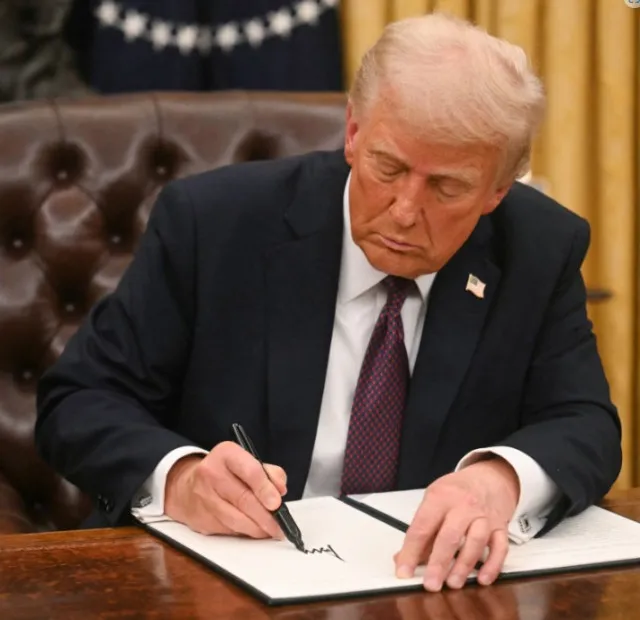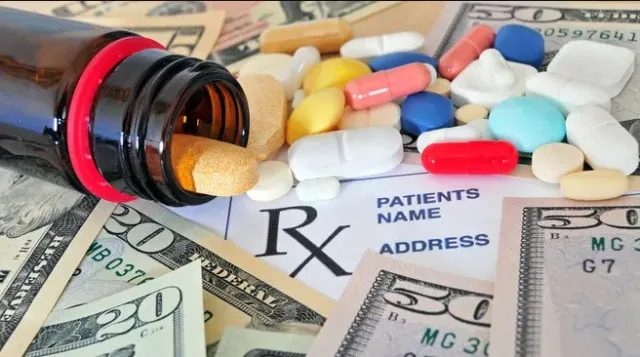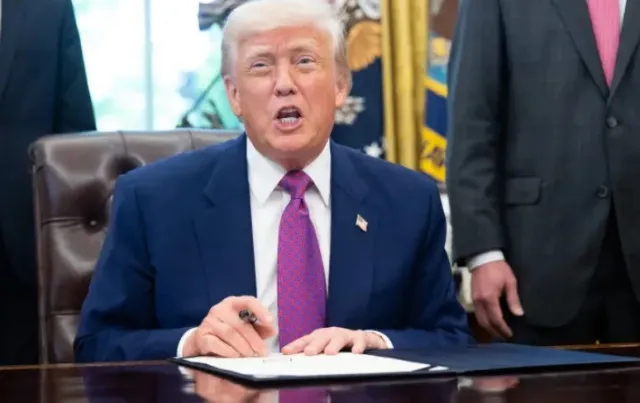Trump plans to sign an executive order reducing prescription drug prices by 30% to 80%, aligning with global rates.
President Trump plans to sign an executive order Monday to drastically reduce prescription drug prices in the U.S.
The order, which he calls a move for “fairness to America,” is designed to bring prices in line with those in other countries.
Trump promised that the new policy could cut prices by as much as 30% to 80%, creating immediate relief for American consumers.
The President introduces “Most Favored Nation” drug pricing policy.
Trump’s plan, which he detailed in a Truth Social post, is built around what he described as a “Most Favored Nation’s Policy.”
This policy would tie U.S. drug prices to the lowest price paid by any country worldwide.

The goal is to ensure that Americans are not paying more for medications than people in other countries.
“I will be instituting a MOST FAVORED NATION’S POLICY whereby the United States will pay the same price as the Nation that pays the lowest price anywhere in the World,” he added.
The U.S. spends $400 billion annually on prescription drugs, often paying up to ten times more than other countries.
The policy aims to eliminate pricing disparities between the U.S. and other advanced countries.
Trump has criticized high U.S. drug costs, highlighting price differences for the same drugs across countries.

His executive order aims to address this issue, bringing drug prices down by a significant margin.
“For many years the World has wondered why Prescription Drugs and Pharmaceuticals in the United States States of America were SO MUCH HIGHER IN PRICE THAN THEY WERE IN ANY OTHER NATION, SOMETIMES BEING FIVE TO TEN TIMES MORE EXPENSIVE THAN THE SAME DRUG, MANUFACTURED IN THE EXACT SAME LABORATORY OR PLANT, BY THE SAME COMPANY???” he wrote.
“It was always difficult to explain and very embarrassing because, in fact, there was no correct or rightful answer.”
The proposal revisits a previous policy.
This move marks a revisitation of a proposal Trump attempted during his first term.
The initial plan aimed to link drug prices for Medicare to the lowest prices in a select group of other countries.
However, it faced legal challenges that ultimately blocked its implementation.
The Biden administration rescinded the policy after taking office.

The 2022 Inflation Reduction Act allowed Medicare to negotiate prices for some drugs.
This change has made it easier for Trump’s new proposal to move forward, potentially allowing for more flexibility in setting prices.
Challenges and concerns may arise with implementation.
While Trump’s new order has the potential to save billions of dollars, it could also lead to unintended consequences.
Experts warn that linking U.S. prices to global standards could limit access to medications, depending on policy implementation.
Concerns exist that drug companies may limit supply if U.S. profit margins are reduced.
Additionally, the pharmaceutical industry is expected to launch a strong opposition to the new policy.

The industry has already fought similar proposals in the past, arguing that price controls would hurt innovation and reduce the quality of care.
Trump’s executive order is likely to spark debate, revisiting a contentious issue in American politics.
This policy could significantly impact the pharmaceutical industry and millions of Americans relying on prescription medications.